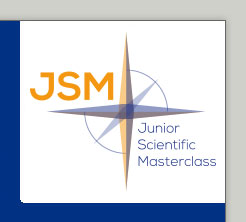Edit researchproject
In this email you'll find a link that you can use to edit the project on the website.
Only researchers that belong to the project can edit their project.
Please use the selectlist below to indicate which researcher you are. When you click the button 'Edit project', an email will be sent to the email of the selected researcher.
Project properties
| Title | Unraveling disease mechanisms in Noordzeeziekte (progressive myoclonus epilepsy due to GOSR2 mutations) |
|---|---|
| Keywords | Noordzeeziekte basic research disease models |
| Researchers |
prof. dr. O.C.M. Sibon prof. dr. M.A.J. de Koning-Tijssen dr. T.J. de Koning Dr. D.S. Verbeek dr. A.J.A. van de Sluis |
| Nature of the research | We are looking for a student who is not afraid of basic science and lab work. Of course during your period in the lab you can participate in all the clinical work related to patients with movement disorders (children and adults) at the department of Neurology and Pediatrics |
| Fields of study | neurology molecular biology |
| Background / introduction |
|---|
|
Recently a novel disorder was discovered in which patients at a young age develop uncoordinated movements (ataxia) and when they grow older develop progressive jerks (myoclonus) and epilepsy. The disorder is caused by mutations in the gene GOSR2, of which its functions are largely unknown. Remarkably of all the patients known worldwide with this disorder, by far the majority of them is known in our hospital. We suspect that the founder of this defect comes from the province of Friesland here in the North of the Netherlands. Together with the "Stichting Noordzeeziekte" we try to unravel the disease mechanisms in Noodzeeziekte to gain insight into the cellular functions of the GOSR2 protein. |
| Research question / problem definition |
|---|
| With better insight in the pathogenesis of this disease, we will be able to treat our patients better in the near future. Therefore we need disease models for "Noordzeeziekte" and for this we will use the fruit fly model and will generate a GOSR2 knock-out mouse model. Cellular localization, expression in specific cell types (likely very active in glia cells) and cellular transport will be investigated. Potential new treatments will be tested in these model systems as well. |
| Workplan |
|---|
|
In this project you will work for a period of 6 months or longer at the lab of Prof Dr O Sibon of the department of Cell Biology or the lab of Dr AJA van de Sluis, Lab Pediatrics, section Molecular Genetics. By means of RNAi techniques you will generate conditional knockdowns of GOSR2 in the fly brain and find out how knockdown of GOSR2 affects glial and neuronal function. Or you will look at the clinical phenotype of the GOSR2 knock-out mouse and changes in the brain due to absence of GOSR2 This research project is an excellent start for an MD PhD project |
| References |
|---|
|
1. van Egmond ME, Weijenberg A, van Rijn ME, Elting JW, Gelauff JM, Zutt R, Sival DA, Lambrechts RA, Tijssen MA, Brouwer OF, de Koning TJ The efficacy of the modified Atkins diet in North Sea Progressive Myoclonus Epilepsy: an observational prospective open-label study. Orphanet J Rare Dis. 2017 7;12:45 2. van Egmond et al, Ramsay Hunt syndrome: clinical characterization of progressive myoclonus ataxia caused by GOSR2 mutation. Mov Disord. 2014;29:139-143. |


